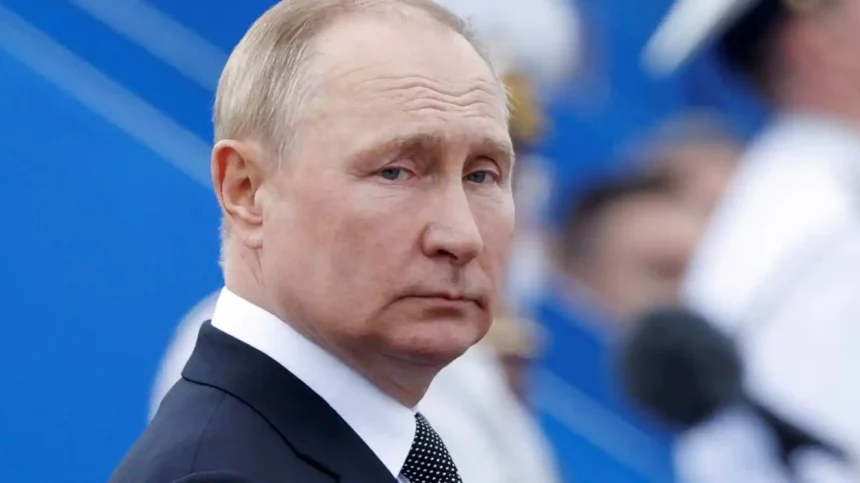According to Vitaliy Klitschko, the city’s mayor, 40% of Kyiv’s users are still without water, and 270,000 residences are without electricity.
According to Ukraine, the attacks across the country harmed 13 individuals.
Russia said that all targets in the attacks, which were intended for Ukraine’s military command and energy infrastructure, were struck.
According to Russian President Vladimir Putin, they were partially in retaliation for an attack on a Russian warship over the weekend.
The Ukrainian military reported that it had destroyed 45 of the 55 fired missiles in its evening report.
Hardly are the effects of Russian attacks on Ukraine’s vital infrastructure disclosed to the wider world due to security concerns.
According to Ukrainian officials, this is done to prevent the sharing of information about targets hit or perhaps missed in future assaults.
However, the effects of Monday’s strikes were evident everywhere. In a few areas, rolling power cuts have been used.
President Volodymyr Zelensky advised all Ukrainians to cut back on their nation’s already “extremely frugal” power usage.
Streetlights were switched off, and regular buses took the place of the streetcars in Kyiv.
After their personal supplies of water were cut off, locals lined up in long lines to gather water from pumps throughout the city.
According to reports, up to 80% of Kyiv’s residents were left lacking running water in the immediate wake of the attacks.
Later, Mr. Zelensky stated that reconnecting families with their utilities was still being worked on in his evening address.
He continued in a defiant message that Russia lacked the weaponry necessary to extinguish “the Ukrainian will to live.”
Along with the capital, Lviv, Dnipropetrovsk, Kharkiv, and Zaporizhzia were all impacted by the strikes.
Overall, 18 facilities—the majority of which produced energy—were struck by missiles and drones in ten different locations, according to Ukrainian officials.
According to Moldovan officials, one of the missiles that Ukraine’s air defenses managed to destroy landed in a border town, causing damage to homes but no injuries.
Moldova later claimed, without identifying the individual, that a member of the Russian embassy staff in Chisinau had been instructed to leave the country.
The attacks on Monday come after Russia accused Ukraine of launching a drone attack on its Black Sea Fleet in the occupied Crimean Peninsula over the weekend; Kyiv has not responded to the accusation.
The strikes were partially intended as a reprisal, according to President Putin, who responded to inquiries from reporters on Monday night.
Additionally, he claimed that Russia had suspended but not abandoned its participation in an UN-mediated agreement that guarantees the safe passage of ships carrying grain out of Ukrainian ports. However, earlier on Monday, Ukraine claimed that despite Russia’s withdrawal from the agreement, ships were still leaving.
The latest instance of what has proven to be Russia’s approach in Ukraine—targeting critical infrastructure before winter, when temperatures can drop as low as -20C—was the recent series of attacks.
Ukraine claims that this is Russia’s response to its military setbacks as the Ukrainian army successfully mounts a counter-attack to retake lost ground.
Oleksii Reznikov, the minister of defense for Ukraine, has said that Gen. Sergei Surovikin, who President Putin nominated as his commanding officer in Ukraine earlier this month, is responsible for the Russian campaign.












